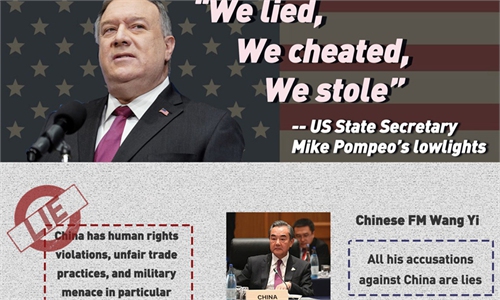F-22Raptor
Elite Member
- Jun 18, 2014
- 19,969
- 23,550
- Country of Origin

- Country of Residence

In past years, when athletes from China have been accused of doping, the government has mobilized its propaganda apparatus of state-owned newspapers, television commentators and social media accounts to defend the athletes and deflect criticism of China’s sports system.
This time, faced with anger from rival Olympiansand charges of a coverup over the revelationthat 23 elite Chinese swimmers had tested positive for a banned substance before competing in the 2021 Olympic Games, China is taking a different approach: virtual silence.
Even as the issue is being debated widely abroad, including in Congress last week, Chinese domestic media coverage has been limited to a handful of terse official statements. Censors have meticulously scrubbed and limited online discussions of the dispute — a level of censorship experts say is rare outside the most politically sensitive topics.
The change of tactic, experts say, reflects what is at stake for China weeks before the Olympic Games start in Paris. Eleven of the 23 swimmers who tested positive in 2021 have been named to the squad heading to Paris. Swimming is one of China’s most high-profile sports, which Beijing invested heavily in over the decades to turn the country into an Olympic powerhouse.
China has denied the accusations of wrongdoing. It has long sought to clean up its sports sector, stepping up testing after doping scandals in the 1990s and early 2000s. That makes suggestions of a cover-up highly embarrassing for China, where athletic competition has an outsize role in burnishing the image of the ruling Chinese Communist Party.
“There is basically zero media coverage of this in China, which is very different from before when other Chinese athletes have been accused of doping,” said Haozhou Pu, an associate professor at the University of Dayton who studies sports in China.
Mr. Pu said officials are most likely hoping the story, which was reported by The New York Times in April, dies down before the start of the Olympics so that it does not distract the Chinese public or China’s swim team. That may explain China’s restrained response, Mr. Pu said.
“No news could be good news,” Mr. Pu said.
When China’s most famous swimmer, Sun Yang, was accused of doping in 2018, state media scrutinized the fairness of the investigation with extensive coverage, and social media users were allowed to leave hundreds of thousands of comments voicing support for Mr. Sun.
By comparison, state media coverage of the 23 swimmers has been largely limited to official remarks. Chinese authorities have said the swimmers’ positive tests in 2021 were based on tiny amounts of the banned substance that came from contaminated food, an explanation that some experts have questioned. The swimmers themselves have made no public comments.
Chinese news reports have carried statements by the Chinese Foreign Ministry saying the country had a zero-tolerance policy on doping, and by China’s antidoping agency, Chinada, disputing the reporting by The Times and accusing the newspaper of violating “media ethics and morals.” One exception was an editorial in the Global Times, a Communist Party newspaper, that accused rival nations of intentionally “manipulating the issue of doping” and “smearing China’s swimming program.”
Discussion of the story also appears to be heavily censored on Weibo, a Chinese social media platform similar to X. Searches for terms such as “doping,” “drug test,” “banned drugs,” “doping swimming” and “Chinese swimming team,” mostly turn up posts of Chinese news articles uniformly carrying official statements from the foreign ministry and China’s antidoping agency.
As recently as 2022, internet censors allowed Weibo users to rally around Lyu Xiaojun, an Olympic gold medal-winning weight lifter who was suspended for doping. Scores of Chinese social media users accused “Westerners” of framing Mr. Lyu.
More notably in 2012, Chinese state media came to the defense of the teenage sensation Ye Shiwen, a swimmer whose record-shattering victory in the 400-meter individual medley at the London Games was met with suggestions that she might have used performance-enhancing drugs.
Ms. Ye, who was 16 at the time, never tested positive, and many in China saw the allegations as outrageous. China’s state broadcaster lauded her for enduring “humiliation” at the hands of the “psychologically unbalanced Western media.” (Ms. Ye, who is not among the 23 swimmers, is competing in Paris next month.)
Xiao Qiang, an expert on Chinese censorship at the University of California, Berkeley, said that the level of censorship around the current dispute over the 23 swimmers is similar to what would be applied to discussions around far more sensitive subjects. Such topics include the 1989 Tiananmen Square massacre of pro-democracy protesters, and elections in Taiwan, the de facto independent island democracy claimed by Beijing, Mr. Xiao said.
He noted that this also appeared to be the first time censors have imposed a blanket ban on online comments criticizing athletes accused of doping. Before, comments expressing disapproval of athletes sometimes slipped through the cracks, such as with Mr. Sun, a polarizing figure whom some Chinese internet users considered arrogant and deserving of his subsequent ban for doping.
The scandal comes at a bad time for China’s top sports authority, the General Administration of Sport, which oversees the Chinese Olympic Committee. In May, China announced that the former head of the authority, Gou Zhongwen, was being investigated for corruption.
China’s official explanation for the positive tests could raise questions from the Chinese public about how competently swimming officials are managing their athletes.
Chinada asserts that the 23 swimmers were unwittingly contaminated with trace amounts of a banned substance called trimetazidine, or TMZ, a drug used to treat patients with heart disease that can also help athletes increase stamina and hasten recovery times. Chinada said the swimmers ingested TMZ through tainted food from a hotel kitchen. It did not explain how the substance ended up on athletes’ plates.
American officials and other experts, citing protocol, said the swimmers should have been suspended or publicly identified pending further investigation. They said the failure to do so rested on Chinese sports officials; swimming’s international governing body, World Aquatics; and the World Anti-Doping Agency, or WADA, the Montreal-based global authority that oversees national drug-testing programs.
This month, The Times revealed that three of the 23 swimmers had tested positive several years earlier for another performance-enhancing drug. They had also avoided being publicly identified or suspended.
WADA confirmed the positive tests for “trace amounts” of the banned substance, known as clenbuterol, a drug commonly found in meat in some countries like China that can also help athletes increase muscle growth and burn fat. WADA said the three swimmers were contaminated by tainted food, but it did not explain why China did not abide by rules that compel them to publicly disclose the positive tests.
This time, faced with anger from rival Olympiansand charges of a coverup over the revelationthat 23 elite Chinese swimmers had tested positive for a banned substance before competing in the 2021 Olympic Games, China is taking a different approach: virtual silence.
Even as the issue is being debated widely abroad, including in Congress last week, Chinese domestic media coverage has been limited to a handful of terse official statements. Censors have meticulously scrubbed and limited online discussions of the dispute — a level of censorship experts say is rare outside the most politically sensitive topics.
The change of tactic, experts say, reflects what is at stake for China weeks before the Olympic Games start in Paris. Eleven of the 23 swimmers who tested positive in 2021 have been named to the squad heading to Paris. Swimming is one of China’s most high-profile sports, which Beijing invested heavily in over the decades to turn the country into an Olympic powerhouse.
China has denied the accusations of wrongdoing. It has long sought to clean up its sports sector, stepping up testing after doping scandals in the 1990s and early 2000s. That makes suggestions of a cover-up highly embarrassing for China, where athletic competition has an outsize role in burnishing the image of the ruling Chinese Communist Party.
“There is basically zero media coverage of this in China, which is very different from before when other Chinese athletes have been accused of doping,” said Haozhou Pu, an associate professor at the University of Dayton who studies sports in China.
Mr. Pu said officials are most likely hoping the story, which was reported by The New York Times in April, dies down before the start of the Olympics so that it does not distract the Chinese public or China’s swim team. That may explain China’s restrained response, Mr. Pu said.
“No news could be good news,” Mr. Pu said.
When China’s most famous swimmer, Sun Yang, was accused of doping in 2018, state media scrutinized the fairness of the investigation with extensive coverage, and social media users were allowed to leave hundreds of thousands of comments voicing support for Mr. Sun.
By comparison, state media coverage of the 23 swimmers has been largely limited to official remarks. Chinese authorities have said the swimmers’ positive tests in 2021 were based on tiny amounts of the banned substance that came from contaminated food, an explanation that some experts have questioned. The swimmers themselves have made no public comments.
Chinese news reports have carried statements by the Chinese Foreign Ministry saying the country had a zero-tolerance policy on doping, and by China’s antidoping agency, Chinada, disputing the reporting by The Times and accusing the newspaper of violating “media ethics and morals.” One exception was an editorial in the Global Times, a Communist Party newspaper, that accused rival nations of intentionally “manipulating the issue of doping” and “smearing China’s swimming program.”
Discussion of the story also appears to be heavily censored on Weibo, a Chinese social media platform similar to X. Searches for terms such as “doping,” “drug test,” “banned drugs,” “doping swimming” and “Chinese swimming team,” mostly turn up posts of Chinese news articles uniformly carrying official statements from the foreign ministry and China’s antidoping agency.
As recently as 2022, internet censors allowed Weibo users to rally around Lyu Xiaojun, an Olympic gold medal-winning weight lifter who was suspended for doping. Scores of Chinese social media users accused “Westerners” of framing Mr. Lyu.
More notably in 2012, Chinese state media came to the defense of the teenage sensation Ye Shiwen, a swimmer whose record-shattering victory in the 400-meter individual medley at the London Games was met with suggestions that she might have used performance-enhancing drugs.
Ms. Ye, who was 16 at the time, never tested positive, and many in China saw the allegations as outrageous. China’s state broadcaster lauded her for enduring “humiliation” at the hands of the “psychologically unbalanced Western media.” (Ms. Ye, who is not among the 23 swimmers, is competing in Paris next month.)
Xiao Qiang, an expert on Chinese censorship at the University of California, Berkeley, said that the level of censorship around the current dispute over the 23 swimmers is similar to what would be applied to discussions around far more sensitive subjects. Such topics include the 1989 Tiananmen Square massacre of pro-democracy protesters, and elections in Taiwan, the de facto independent island democracy claimed by Beijing, Mr. Xiao said.
He noted that this also appeared to be the first time censors have imposed a blanket ban on online comments criticizing athletes accused of doping. Before, comments expressing disapproval of athletes sometimes slipped through the cracks, such as with Mr. Sun, a polarizing figure whom some Chinese internet users considered arrogant and deserving of his subsequent ban for doping.
The scandal comes at a bad time for China’s top sports authority, the General Administration of Sport, which oversees the Chinese Olympic Committee. In May, China announced that the former head of the authority, Gou Zhongwen, was being investigated for corruption.
China’s official explanation for the positive tests could raise questions from the Chinese public about how competently swimming officials are managing their athletes.
Chinada asserts that the 23 swimmers were unwittingly contaminated with trace amounts of a banned substance called trimetazidine, or TMZ, a drug used to treat patients with heart disease that can also help athletes increase stamina and hasten recovery times. Chinada said the swimmers ingested TMZ through tainted food from a hotel kitchen. It did not explain how the substance ended up on athletes’ plates.
American officials and other experts, citing protocol, said the swimmers should have been suspended or publicly identified pending further investigation. They said the failure to do so rested on Chinese sports officials; swimming’s international governing body, World Aquatics; and the World Anti-Doping Agency, or WADA, the Montreal-based global authority that oversees national drug-testing programs.
This month, The Times revealed that three of the 23 swimmers had tested positive several years earlier for another performance-enhancing drug. They had also avoided being publicly identified or suspended.
WADA confirmed the positive tests for “trace amounts” of the banned substance, known as clenbuterol, a drug commonly found in meat in some countries like China that can also help athletes increase muscle growth and burn fat. WADA said the three swimmers were contaminated by tainted food, but it did not explain why China did not abide by rules that compel them to publicly disclose the positive tests.











